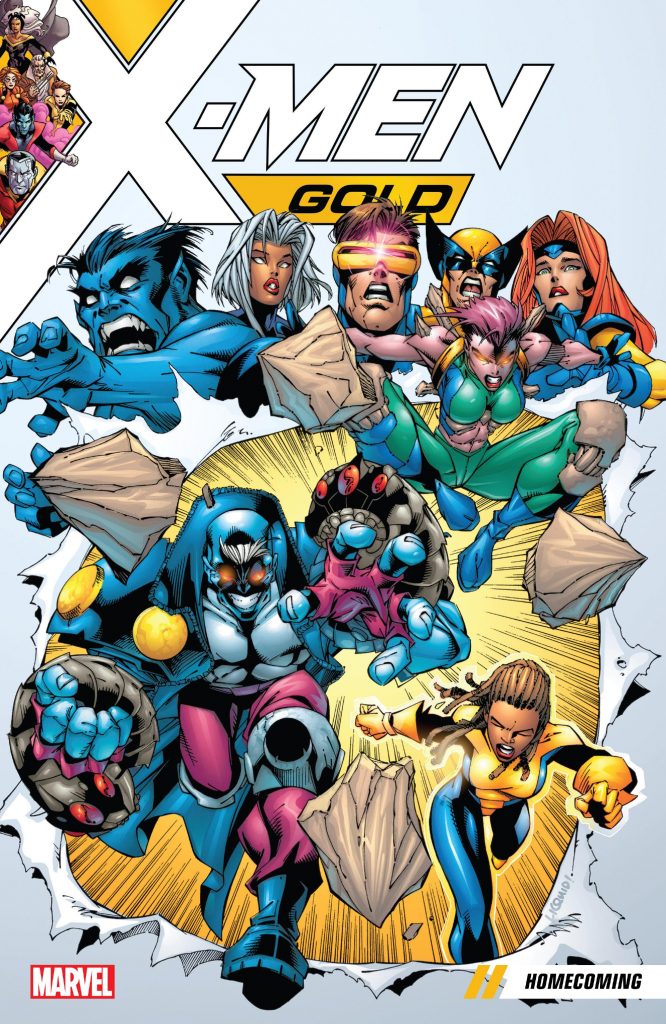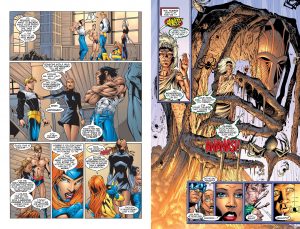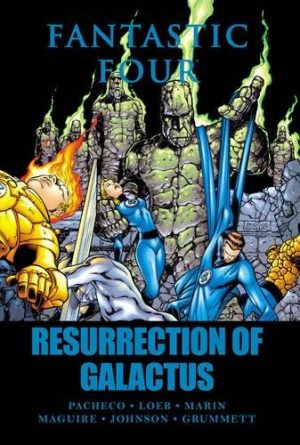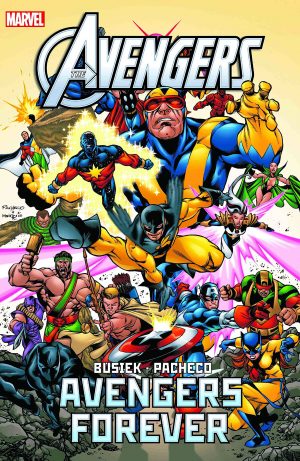Review by Ian Keogh
The Marvel of the 21st century has never been a company willing to let a cent slip by if some old material can repackaged and made to seem as if it’s somehow connected to something contemporary and popular, and so it is with Homecoming. With the X-Men Gold series up and running, and graphic novel collections already being published, we’re presented with a selection of Joe Kelly’s X-Men stories from 1998.
Over the opening chapters Kelly’s plots are good, creating problems for individual X-Men and for the team, but they’re dragged down by the simplistic and aggressive characterisation providing a relentless negativity. Everyone’s grumpy, and no-one’s able to talk to someone else in a reasonable way. While friends sometimes need to resolve issues, Kelly ramps up the posturing so excessively that there’s no credible way most of his cast would remain in the same room together, never mind be team-mates. Kelly’s favourite source of aggravation is Marrow, with a whole chip shop on both shoulders, and the ridiculous power of being able to pull bones out of her body as they rapidly regenerate.
After four chapters of this, Kelly tones down the aggression, introduces some subplots, and the stories become a little more interesting, if still very wordy and introspective. Unfortunately, the same can’t be said for the art. Carlos Pacheco draws the first few chapters, not yet the polished artist he’d become. The drawing is fine, but the layouts close in tight all too often when some distance is required, although to cut a decent artist some slack, it was very much the style of the era. That certainly applies to the efforts of some other artists, none of them able to match Pacheco’s technique, overdosing the vertical panels and close-ups. German Garcia (sample art right) has a sense of design, but not when it comes to laying out a page, and some of his work is plain ugly, making reading what’s Psylocke’s redemption hard work. Of the remainder, Jeff Johnson shows the most promise.
Jorge Gonzales and Aaron Lopresti are responsible for a story about Doctor Doom from the earliest days of the Marvel universe travelling forward through time to assorted battles between the X-Men and Magneto, and then back to the past via several other pivotal X-Men moments. It’s overwritten and uninspiring. Slightly better, although overly dramatic, is a short story by Bill Roseman and Marty Egeland just pre-dating Maggot’s X-Men involvement and explaining her presence.
With a different artistic approach some of the material might have stood the test of time, but it is what it is, a bulky package, encompassing ten issues, two of them double sized, along with an annual, but at an inflated $35 list price, so beware. A further indication of quality is that no-one could be bothered tinkering with the original credits to the Doctor Doom story, where Lopresti is named as Lopestri. The book closes with Kelly interviewed about his Marvel work, the X-Men only mentioned right at the end.





